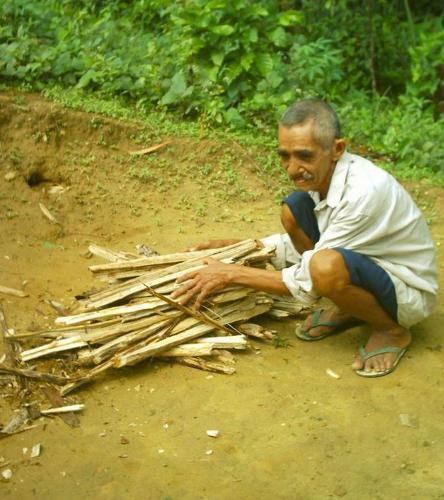Alimaturahim
Other projects
18 Sep 2009
Increasing the Indigenous Forest People's Capacity to Establish Participatory Forest Management
This project intends to reduce the poverty of indigenous forest peoples and other forest-dependent communities in a sustainable way. To this end, the indigenous forest peoples will be facilitated to develop honey home-industry.

Principally, this project is a response to the rapid degradation of natural forests in S.E. Sulawesi. This province has a land area of 3,814,000 ha of which 2,518,337 ha (66%) comprise natural forests. These, unfortunately, continue to shrink severely. Between 1992 and 2003 alone, the total deforestation was 371,385 ha. This means the average rate was over 33,762 ha per year, or 3.8 ha per hour (larger than three football fields!). The forests are home to approximately 300 species of globally endangered and/or endemic wildlife and plants, including the dwarf buffalos Anoa Bubalus depressicornis and quarlesi, and the rare orchid Dendrobium utile. In addition, the forests are primary sources of food, livelihoods, medicines, shelters, and also sacred places to about 800,000 forest-dependent communities including over 200,000 indigenous forest peoples that comprise 29 different ethnic groups.
One of the causal factors of the deforestation is that the indigenous forest peoples and other forest-dependent communities continue to be trapped in extreme poverty. Most have no choice but to live on destructive efforts primarily illegal logging and poaching. At the same time, the government and NGOs almost have done nothing to address the problems. This project will increase the indigenous forest peoples’ capacity to produce and market honey that is highly demanded by local and national markets. Honey is very popular and most preferred as natural drug against many diseases. It is also vitally needed by various food industries. Besides for primary livelihood, the forest peoples also could consume the honey for their health care.
As bees need healthy forests to produce better honey, the indigenous forest peoples and other forest-dependent communities (who will be encouraged to live on beekeeping) would do their best to protect the forests and gradually quit from living on destructive efforts in the ecosystem. So, this project is very strategic for protecting natural forests while generating the income of forest peoples in a more sustainable way. This, in turn, will significantly answer the problem of deforestation described above.